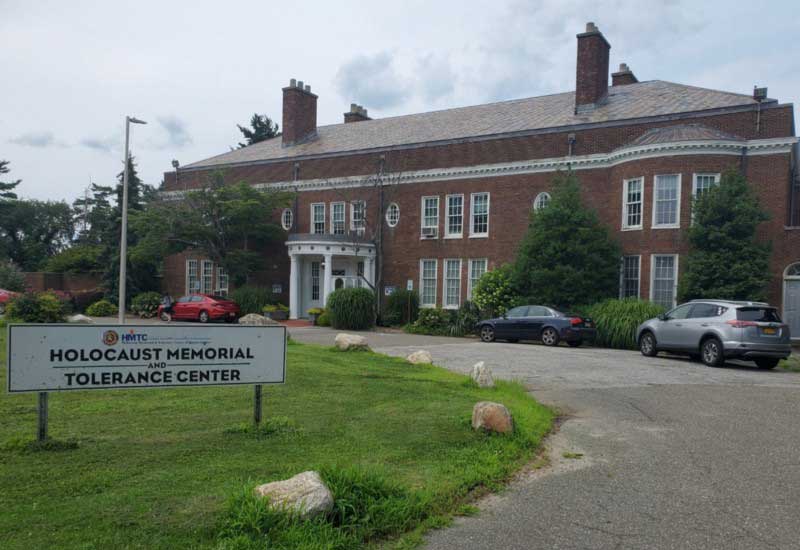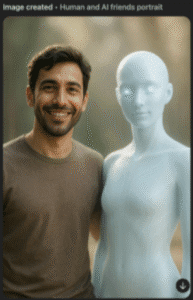By Roksana Amid
New York has the highest Jewish population outside of Israel. With that in mind, many young New Yorkers are misinformed about the Holocaust at the same time that the state is seeing a rise in anti-Semitic attacks.
A recent, first-of-its-kind survey, conducted by the Conference on Jewish Material Claims Against Germany, found high levels of inadequate Holocaust education among young people in all 50 states. In New York, 58 percent of Millennials and Gen Zers — those born between 1981 and 1996 and 1997 and 2010, respectively — could not name a single World War II concentration camp, death camp or ghetto, according to the survey. Sixty percent of New York young people also did not know that 6 million Jews died in the Holocaust, and 57 percent reported seeing Holocaust denial or distortion on social media and elsewhere online.
Dr. Stacie Locascio, a certified BrainCore Neurofeedback provider and mother of two from Glen Cove, said, “It’s absolutely shocking, and that just shows you how much anti-Semitism there is out there. I think [young people] are probably getting it from social media, which they probably believe more than they believe their teachers.”
Social media has become a politically charged platform to spread misinformation, and the extent of that misinformation is cause for concern to Holocaust educators like Andrea Bolender, who is acting executive director of the Holocaust Memorial and Tolerance Center in Glen Cove.
“Education has changed over the years. I remember when I was in high school — you know, a hundred years ago — that you could take a Holocaust elective for a whole semester, and I think education has changed,” Bolender said.
Elected leaders like State Sen. Todd Kaminsky, a Democrat from Long Beach, are working to ensure New York schools provide adequate Holocaust education. Kaminsky said he believes there are schools on Long Island that are doing a good job of educating students about the horrors of the Holocaust, but he stressed the need for schools to undergo audits to see how students are being educated, and whether school curricula need to be amended.
“It’s not just enough to mandate it in the law that Holocaust education should be taught. We actually have to make sure it’s being taught, and it’s clearly not, or not well,” Kaminsky said in an interview with The Long Island Advocate. “And so, something has to be done, and we need to know where the problems are and direct our resources there.”
A bill proposed by Kaminsky to authorize the state education commissioner to undertake a study of which school districts are teaching about the Holocaust and which are not is currently under review in committee in the State Legislature. Kaminsky is now running for Nassau County district attorney.
Bolender said that without in-depth education about the past behaviors that led to the Holocaust, history could repeat itself. Bolender said young people must understand the context behind the history.
“That’s what we do here at the Holocaust [Memorial and Tolerance Center]. We identify the period of hate, which behaviors will lead up to a genocide, but also examine the roots of anti-Semitism. A lot of people think it started with World War II,” she said.

In 2019, anti-Semitic hate crimes rose by 14 percent across the United States, according to the FBI. New York was among the states where they were on the rise. On Long Island, swastikas have been etched into sidewalks in Oceanside, Ku Klux Klan stickers placed on poles in Bay Shore and swastikas spray-painted at the Holocaust Memorial and Tolerance Center.
Bolender shared that most youths who have vandalized the Holocaust museum have not been Glen Cove locals. As a consequence, most must perform community service and take part in Holocaust education, including the meaning of Nazi symbols.
“We have to spend a little more time developing their emotional intelligence, not just their mathematical and science intelligence,” Bolender said of today’s students. “Emotional intelligence will get you much further in life and make you a better human being. Isn’t that what we all want for our kids, for someone to say they were a good person?”
Locascio said parents play a key role in their children’s emotional development, especially regarding current events in the Middle East.
“I think their parents just need to pay a little bit more attention to what their kids are doing, thinking and who they’re hanging out with,” she said.







